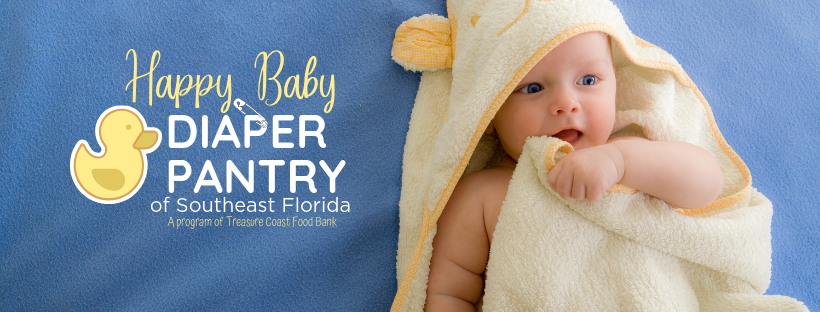Diaper need is a silent crisis in the United States. Diapers are a basic need for children, as essential to their health and well-being as food and shelter. Yet nearly 1 in 3 families in America struggle to afford diapers for their children.
Families unable to afford diapers are forced to choose between a range of undesirable alternatives that can severely impact the health and well-being of both their child and their household. Many families report cutting back on basics such as food, utilities or child care in order to purchase diapers for their children. Other families report leaving their children in soiled diapers for a longer period of time than they otherwise would have. Some families even resort to cleaning out or drying soiled diapers and reusing them in order to meet their diaper needs.
These alternatives can have severe repercussions for the health, economic and emotional well-being of the child, parent and household. Leaving children in soiled diapers longer than they should can lead to diaper rash, infections, irritability and difficulty in mother-child attachment. These consequences can lead to lower self-esteem and depression among parents who are not able to provide adequate diapers. Some parents are forced to forgo employment or educational opportunities since many daycare programs will not accept children without a supply of disposable diapers.
Most Americans who have not faced this struggle do not know the problem exists. Furthermore, the federal government makes no provision to provide diapers to those in need. Federal benefits such as Food Stamps and the Special Supplemental Nutrition Program for Women, Infants and Children (WIC) cannot be spent on diapers.
While the majority of families in the United States are aware of food banks, few are aware of the existence of diaper banks. This is why in 2014, the Treasure Coast Food Bank partnered with the National Diaper Bank Network to raise awareness about this devastating problem and started a diaper bank distribution network throughout Southeast Florida and beyond to reach families in need.
Some Facts About Diaper Need
- 1 in 3 families in America struggle to afford diapers for their children.
- Two-thirds of those identifying as in need of diapers are employed, with 14 percent working multiple jobs to make ends meet
- To provide diapers for their children, three-fourths of families with diaper need (74%) said they reduce other spending on Food and grocery purchases (39%), Personal hygiene items (37%), and Transportation costs (26%)
- Families with diaper need spend 11 percent of their monthly income on diapers and other baby care products, the fourth-highest expenditure after mortgage/rent (29%), food (17%) and utilities (12%) and exceeding transportation (10%)
- At an average cost of $18 per week, families require $936—more than 4% of poverty-threshold income—per child per year for diapers.
- Families from a range of incomes struggle to afford diapers, including both families who fall below the federal guideline of poverty ($25,000 for a family of four) and families with incomes above the federal poverty guideline but who are still considered low-income.
- Research suggests that families earning twice the federal poverty guideline still struggle to meet their basic needs.
For more information about this program, please contact happybaby@tcfoodbank.org








